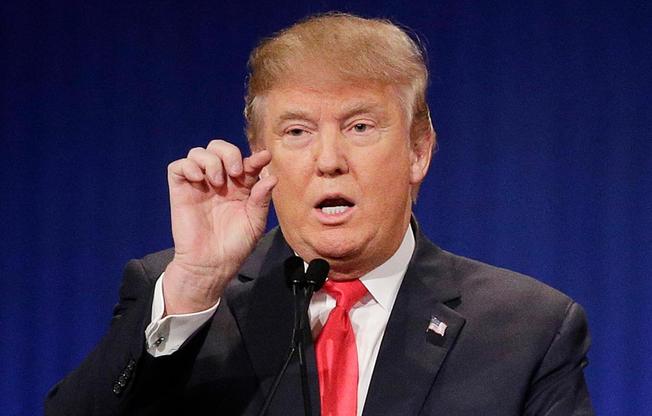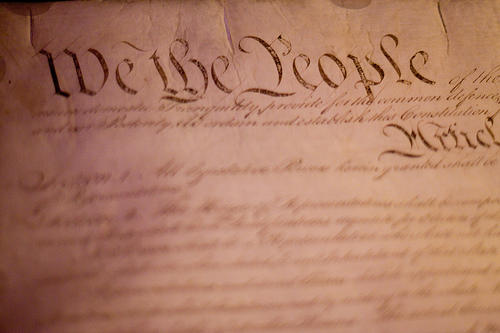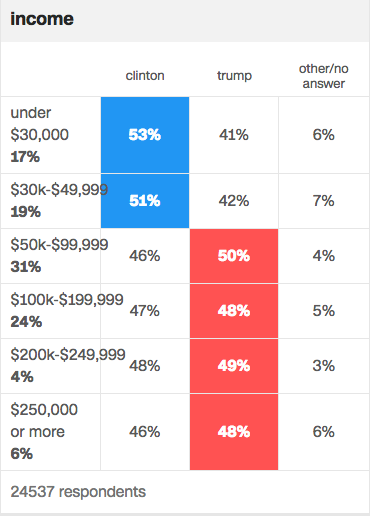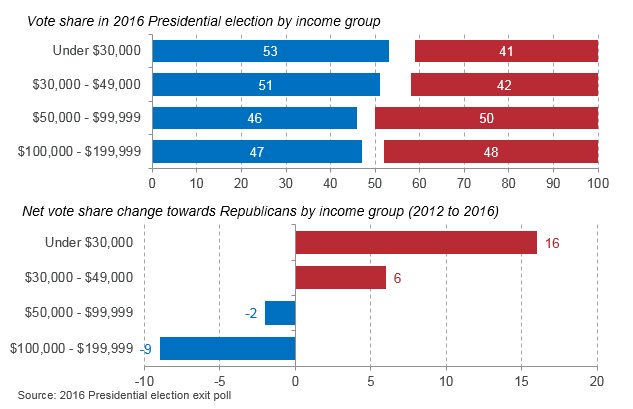(This article is by Tony Wikrent)
What is our system of government supposed to be? A republic. But a republic is so ill-defined that even John Adams famously wrote “the word republic, as it is used, may signify anything, everything, or nothing.”
According to historian Gordon Wood:
The sacrifice of individual interests to the greater good of the whole formed the essence of republicanism and comprehended for Americans the idealistic goal of their Revolution…. To eighteenth-century American and European radicals alike, living in a world of monarchies, it seemed only too obvious that the great deficiency of existing governments was precisely their sacrificing of the public good to the private greed of small ruling groups. [1]
Just as important: Are there principles and policies of political economy that are supposed to distinguish a republic from other forms of government, i.e., monarchies, oligarchies, plutocracies, dictatorships, etc.?
Since it became clear that President Obama was unwilling to directly confront the power of Wall Street, I have read deeply trying to answer these questions for myself.
Contrary to what many on the left believe, the US Constitution is NOT solely designed to protect the rich. Our system of government definitely has been twisted to that end, but I do not believe that was the intent of Hamilton, the founder most responsible for laying the foundation of the US economy. (And remember, Washington used Treasury Secretary Hamilton basically as a prime minister, and agreed with or acceded to literally all of Hamilton’s economic beliefs and policies. This was in no small part a function of their shared experience at the pinnacle of American military command during the Revolutionary War, when they both identified Britain’s major strategic advantage to be Britain’s ability to raise funds and float debt through its financial system.)
Culturally, the most important aspect of a republic is supposed to be equality, especially economic equality. This is of course contrary to the view that the government was set up solely to protect property and the accumulation thereof. It was not – at least, not by Hamilton.
Economic equality is basic to a republic because, the idea was, no person can be fully independent and be a good citizen if their livelihood depends to some extent or other on another person’s largess, benevolence, or tolerance. This was the basis of the fight between the Hamiltonians and the Jeffersonians. Jefferson believed that only farmers who owned their own land were independent enough to honestly exercise the duties of citizenship. Jefferson wanted to delay the advent of industrialization and subservient factory labor as long as possible. This is why Jefferson acceded to the Louisiana Purchase, which he would otherwise have opposed on the grounds that the federal government has no express power to acquire such territory. [2] With the Louisiana Purchase, yeoman squeezed out of the established eastern seaboard would be able to cross the mountains, and buy, steal, or somehow take the land of the Native Americans and set themselves up as independent farmers.
Hamilton, by contrast, understood that the economy could not be frozen in time and remain entirely agrarian. Industrialization HAD to not only proceed, but be encouraged [3], for the US to have any chance of resisting the intrigues and hostility of the European powers – which remained committed to eradicating the American experiment in self-government until the US Civil War. (France and Spain landed troops in Mexico and Caribbean at the beginning of the war; the Mexican republic was eliminated and Maximilian, younger brother of Austrian emperor Francis Joseph I, was installed as puppet emperor; and the British were preparing to land troops in Canada in 1862, but were deterred by the pro-US street fighting in London and elsewhere which was led by Garibaldi’s revolutionaries.)
Hamilton’s great insight was that economic development depended entirely on improving the productive powers of labor. This meant the development of science and technology, and the spread of machinery to replace muscle power. The correct view of Hamilton must be precise: It was not that Hamilton sought to encourage and protect wealth, but to encourage and protect the CREATION of wealth. (Read Section II, Subsection 2, “As to an extension of the use of Machinery…” in Hamilton’s December 1791 Report to Congress on the Subject of Manufactures, if you want something to read today.)
This is where Marxist analysis fails catastrophically. Yes, much of economic history is that of elites accumulating wealth through exploitation, fraud, and violence. BUT: How was that wealth, which is stolen, created in the first place? Thorstein Veblen, and his discussions of industrial organization versus business organization, are far more useful in understanding the COMPLETE economic story, not just the exploitation side of it. I believe that once you understand this, you can understand why Elon Musk is much more useful to society than Peter Thiel. Musk and Thiel are both rich: Should we therefore oppose and denigrate both because they are rich, and we dislike our system of government, which has been mutated and diminished in order to protect the rich? No. I admire Musk because he has used his PayPal lode to create new wealth (which takes the corporate forms of Tesla, SpaceX, and Solar City), while Thiel has used his PayPal lode to fund libertarian ideas which are fundamentally hostile to what America is supposed to be. In Veblen’s analysis, Musk is an industrialist, while Thiel is merely a businessman.
In the nineteenth century, it was generally understood that the system established by Hamilton was in opposition to the “classical economics” of Adam Smith, David Ricardo, Thomas Malthus, and the other apologists for the death and destruction wrought on entire countries by the British East India Co. and the British empire. In the 1820s, Henry Clay coined the term “American system” to distinguish it from the British system. Michael Hudson has pointed out that, in addition to these two systems of political economy, a third was developed in the nineteenth century: Marxism. [4]
It is easy to be confused by American history, because at the same time that the American system was being built and practiced, the British system was competing with it for control of domestic economy and polity. To the extent that people today mistakenly believe that the American economy was founded on the ideas of Adam Smith — it most emphatically was not, as Hamilton explicitly rejected the ideas of Smith — the British system is winning. Michael Hudson has written at least two excellent overviews of this fight within the US between the American and British systems. [5] For now, the simplified version is that the British system was dominant in the slave South, and fought for free trade in opposition to the American system’s protective tariffs.
Because Hamilton’s American system sees economic strength flowing from increases in the productive power of labor, labor naturally has a favored place in the system. Or, at least, it is not ignored and even denigrated as it is in the British system, which likes to focus more on such things as monetary aggregates, and physical hoardings of “wealth” such as gold or land. What made the New Deal work (and it should be understood that the GI Bill was one of the most important legal enactments of the New Deal, along with financial regulation and Social Security) was that it allowed labor to achieve parity with, if not superiority over, capital, represented by the financial system.
The development of the Eurodollar market in the 1960s allowed US banks to begin sidestepping New Deal regulations. This was augmented, and eventually dominated, by increasing flows of hot money from illegal narcotics and organized crime. In 1976, the pound sterling crisis allowed US financial interests, acting through the International Monetary Fund, to impose economic austerity on Britain, terminating the Labor Party’s policy focus on full employment. In the US, this shift in policy priority from full employment was imposed by the new Chairman of the Federal Reserve, Paul Volcker, who pushed “interest rates up to record highs in order to break inflation and undermine the wage militancy of American workers…. This restoration of class power, underpinning the neoliberal political project, relied upon high interest rates, recession and market liberalization.” [6]
The slow destruction of the Democratic Party since the Atari Democrats (see Matt Stoller’s recent article on “How Democrats Killed Their Populist Soul”) and then Bill Clinton, is because Democratic Party elites have come to accept the neo-liberal fantasy that finance is more important than labor.
Notes
[1] The Creation of the American Republic, 1776-1787, by Gordon S. Wood, University of North Carolina Press, Chapel Hill, NC, 1969, page 53.
In February 1866, when Massachusetts Senator Charles Sumner delivered an epic speech urging the passage of the Equal Rights Amendment, his direct observations on republicanism covered twelve pages (pages 176 to 188). Sumner’s is as good a summary of what a republic is supposed to be as any you are going to find. It consists of carefully selected quotes from many of the founding fathers. In the 1850s, Senator Sumner was such a persistent and powerful critic of Southern slave holders that in May 1856, South Carolina Congressman Preston Brooks nearly killed Sumner on the floor of the Senate by beating him over the head with a cane. Brooks continued to beat Sumner even after Sumner had lost consciousness. Other Senators were prevented from stopping the attack by Virginia Representative Henry A. Edmundson and South Carolina Representative Laurence Keitt, who brandished a pistol. Sumner required three years to recover before he could return to his Senate seat, and suffered chronic, debilitating pain for the rest of his life. Two weeks after the attack, Ralph Waldo Emerson wrote: “I do not see how a barbarous community and a civilized community can constitute one state. I think we must get rid of slavery, or we must get rid of freedom.”
[2] Jefferson’s original instructions to his envoys to Paris contained no mention whatsoever of acquiring land for the United States, because their mission was to secure for Americans the right of free passage down the Mississippi River. It was the French who proposed the idea to sell the territory, motivated by the need to raise monies for their war with England.
[3] In one of the most remarkable passages in Hamilton’s December 1791 Report to Congress on the Subject of Manufactures, Section VII, Hamilton writes that “the apprehension of failing in new attempts” requires the government to take an active role in promoting and supporting the attempts of private entrepreneurs at “overcoming the obstacles inseparable from first experiments.”
[4] Michael Hudson on the American School of Political Economy
[5] Hudson, America’s Protectionist Takeoff 1815-1914: The Neglected American School of Political Economy, ISLET, 2010, which I quote extensively in HAWB 1791 – Alexander Hamilton rejected Adam Smith. Also by Hudson: Simon Patten on Public Infrastructure and Economic Rent Capture. Another very useful book is James L. Huston, Securing the Fruits of Labor: The American Concept of Wealth Distribution, 1765-1900, Louisiana State University Press, 1998.
[6] Jeremy Green, American Power and the Making of British Capitalism, 04 June, 2013. Green is referring to Sam Gindin and Leo Panitch, The Making of Global Capitalism: The Political Economy of American Empire, Verso, 2012.








